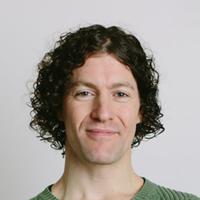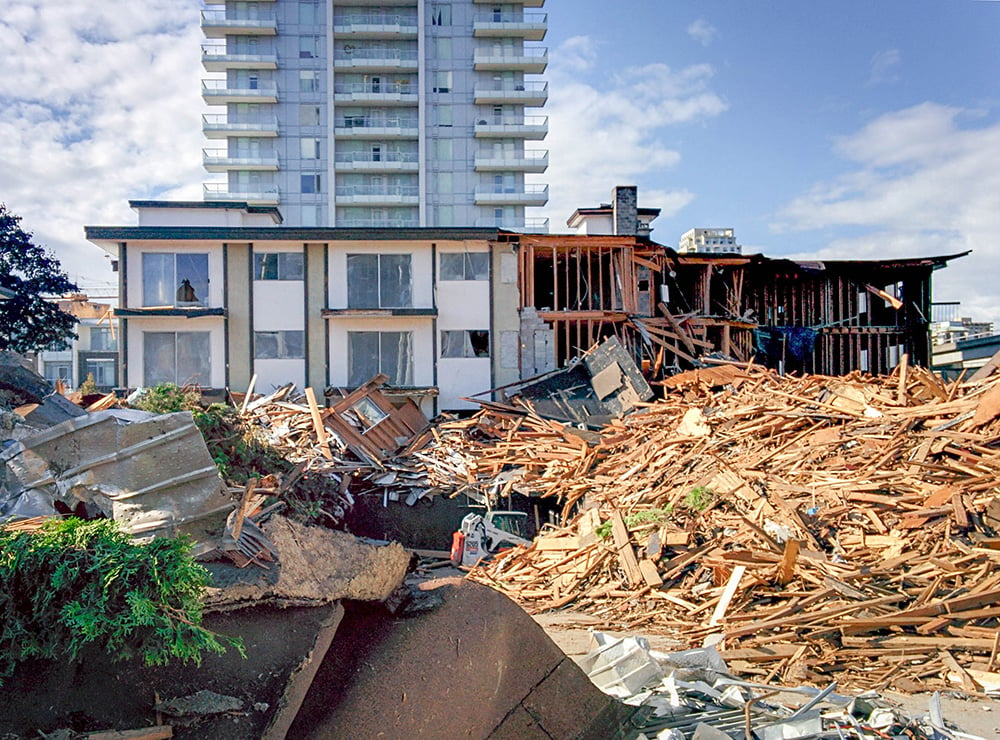The Tyee’s top stories this year tell us a lot about 2017.
From the age of Trump to the end of Vancouver as a livable city to the risk of environmental collapse, they make for gloomy reading — or a call to action.
Here is The Tyee’s annual report on our top stories of the year. Because we know you like to get meta with us, we went a bit deeper than the ones you merely clicked on.
We looked at what you truly read measured by time on the page, what you emailed to your social media-eschewing friends, and what you printed, even, for your screen-eschewing friends.
And we threw in a few strange and interesting facts about how you got here and where the stories went next in 2017, another year nobody could claim has been dull on the news front.
We hope more than a few newspapers remain by year’s end to celebrate that fact — and that you’ll support independent media to keep this kind of reporting strong.
The Hits
Based on page views, the stories you read at The Tyee.
1) I Left Vancouver Because Vancouver Left Me
Jessica Barrett’s piece on leaving The Tyee’s loved home base struck a (sad) chord and attracted more readers than any other in 2017. About a third of the readers were Vancouverites, perhaps also barely hanging on. Or watching friends leave for almost certainly more affordable (albeit not likely greener) pastures.
“All my friends, where did they go?” asked Joel Plaskett way back in 2003, singing about the youth exodus from his native Halifax. To which the band responds, “Montreal and To-ron-to!”
Outside the Lower Mainland, Barrett’s piece attracted the most readers in Toronto, another city where housing costs are driving young people away. Trailing Toronto was Calgary, where Barrett planned to move into an affordable riverside two-bedroom apartment. Next were Victoria and Edmonton.
The piece reached even more people indirectly. It inspired a segment on CBC’s The National and an accompanying article on cbc.ca. And at least one somewhat funny satirical piece at a student newspaper, "Confusion erupts as young woman moves without writing ‘Why I’m leaving Vancouver’ open letter.”
2) Inside the Ugly Unravelling at the Vancouver Sun and Province
Sadly, Tyee founder David Beers could have written too many similar stories this year.
The opening paragraph describes a scene repeated in news media outlets — print and broadcast — this year.
“It’s been a brutal three weeks of dread, tears, and colleagues suddenly forced to see each other as threats to their own jobs. That’s the picture painted by sources who were inside the recently merged Vancouver Sun and Province newsroom after layoffs were announced and the sorting of survivors and casualties began to unfold.”
Tellingly, the second most frequent search term that landed readers on the page, after “Vancouver Sun,” was “the fate of newspapers in Vancouver.” (And more readers than average came to this story through online searches.)
Did we mention the need to support independent media?
3) Nine Things the Real Estate Industry Doesn’t Want You to Know
People love odd-numbered lists . (Thus the headline for this story.)
But more importantly, our readers love well-researched investigations on real estate in Vancouver by veteran Tyee contributor Geoff Dembicki.
Dembicki spoke with financial analysts, economists, industry consultants, realtors and many others to learn the true causes of Vancouver’s housing crisis and who is profiting from it. He then distilled it all down to nine key insights.
Dembicki also landed chart-topping numbers of readers with two other real estate industry pieces, The Real Reason You Can’t Afford a Home and A Realtor’s Revolt.
4) Never Mind Trump: Worry About His Supporters
We know Tyee readers like dark stories, or as we called it in 2017, “accurate.” And what is darker than picturing Donald Trump’s little fingers even remotely near the buttons that could launch nuclear war?
Crawford Kilian offered his always solid and detailed analysis backed by a trove of historical context and an unflinching look at scenarios we have considered unthinkable for years — and now must face.
5) What, Me Worry? Humans Are Blind to Imminent Environmental Collapse
Fear not, lovers of dark/accurate reads. If fate manages to keep those little fingers away from those nuclear buttons, they are still probably signing documents that are gutting any legislation designed to forestall the terrible accelerating loss of biodiversity described by William E. Rees.
Rees scored a double in essential depressing reads, also authoring the sixth most read article. Staving Off the Coming Global Collapse describes the devastating impact of “overshoot,” when a species uses resources faster than can be replenished and argues that without drastic change, we face global disaster.
Not Just Read, But Read Carefully
Where the Parties Stand on Six Hot Issues held readers, on average, for the longest amount of time in 2017.
Tyee reporters Katie Hyslop and Chris Cheung dug through the platforms and public statements to produce this matrix of party positions on key issues as part of the Tyee’s extensive reader-funded election coverage. And readers responded by committing more time to this story than any other in 2017. It confirmed our readers were determined to be informed voters who helped shape the outcome of the most interesting provincial election in recent memory.
The article remains highly useful. The comparison of party platforms offers a basis for tracking how well the NDP government delivers on its promises, and how consistent the Greens and Liberals are now that the campaign is long over.
Most Commented
Judged by most comments in a single day, as reported by Disqus*
Breaking Bad: The Pathology of Site C
Andrew Nikiforuk’s blunt analysis of the government’s decision to proceed with the Site C dam drew a strong — and positive — response from Tyee readers.
And it barely edged out another Site C story by Andrew MacLeod, who just celebrated 10 years as The Tyee’s legislative bureau chief. The pieces received 580 and 520 comments, respectively.
Declared Fit to Print
Is English a Dying Language? Of Course
Tyee readers are quick to let us know when there are any issues with the “print” button at the top of every story. Even in an age of social media sharing, many readers prefer hard copy.
And what more fitting article to print — a dying medium, some say — than one about the dying language it is written in?
Was it angry parents tired of their kids texting shorthand? Or hardline journalism professor and current Tyee editor Barry Link making copies to hand to students enamoured with shortcuts like “ur”?
Whatever the reason, The Tyee’s Crawford Kilian produced an insightful piece that was the most printed this year.
Most Emailed to a Friend
There’s Another Way for Canadians to Help Refugees
There are lots of ways to share articles, but clicking the little button that allows you to email a piece to a friend or colleague suggests a personal connection.
Graduate student Rabia Mir inspired the largest number of readers to share her piece analyzing research that suggests government dollars for refugees might be better spent on improving conditions in overseas camps rather than on resettlement in Canada.
*Thanks to commenter John Merriman for pointing out Mike Sosteric’s recent story on Trump and others have larger total comment volume. Disqus reports comment volume by day and we relied on this stat to judge the top comment provoking story. ![]()
Read more: Media
















Tyee Commenting Guidelines
Comments that violate guidelines risk being deleted, and violations may result in a temporary or permanent user ban. Maintain the spirit of good conversation to stay in the discussion.
*Please note The Tyee is not a forum for spreading misinformation about COVID-19, denying its existence or minimizing its risk to public health.
Do:
Do not: